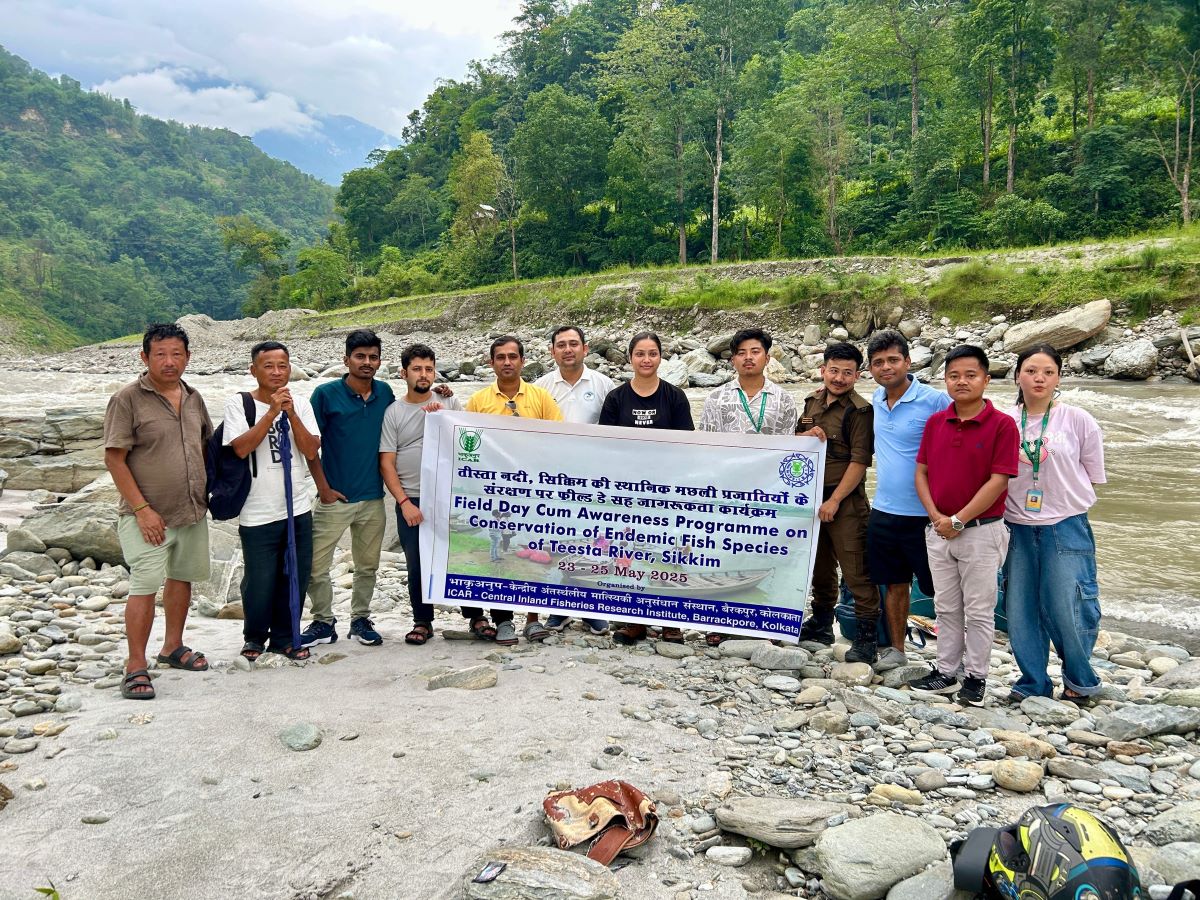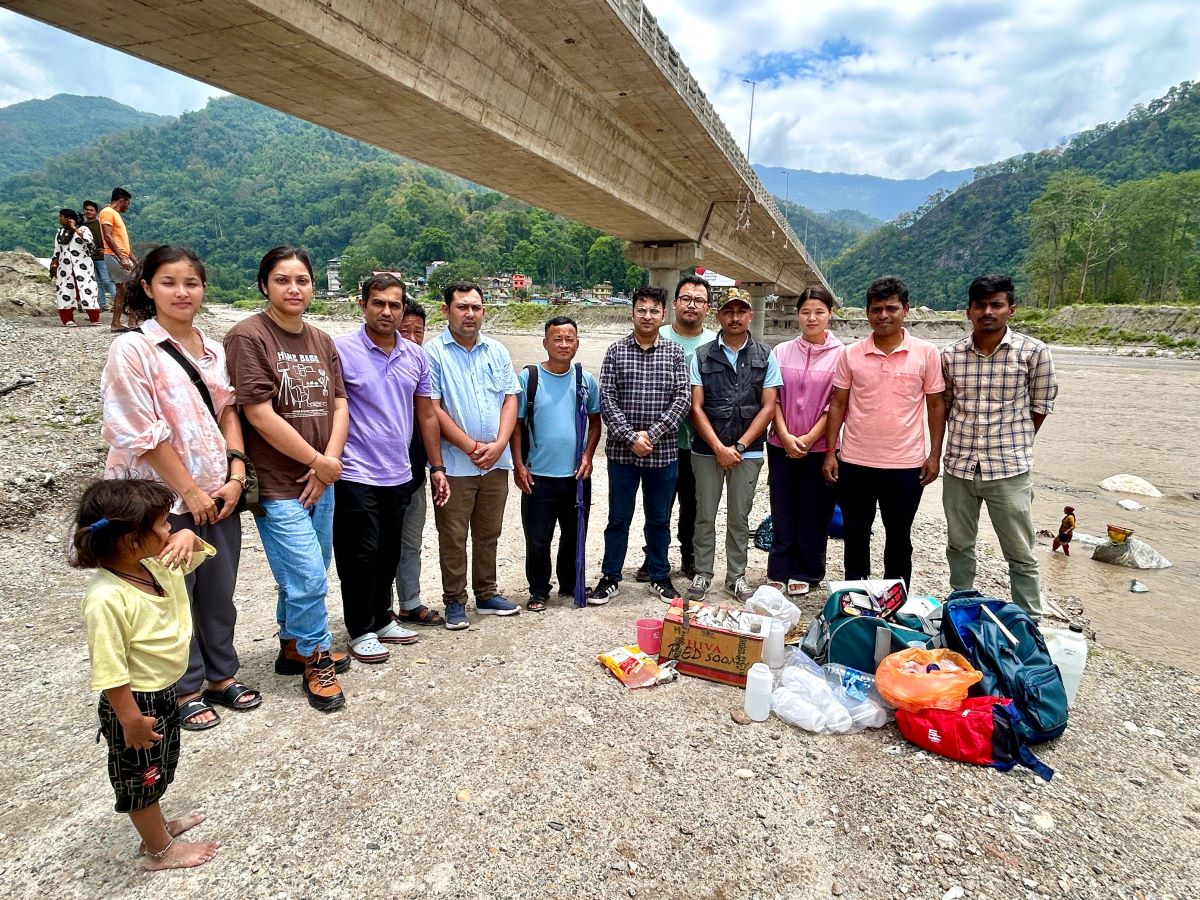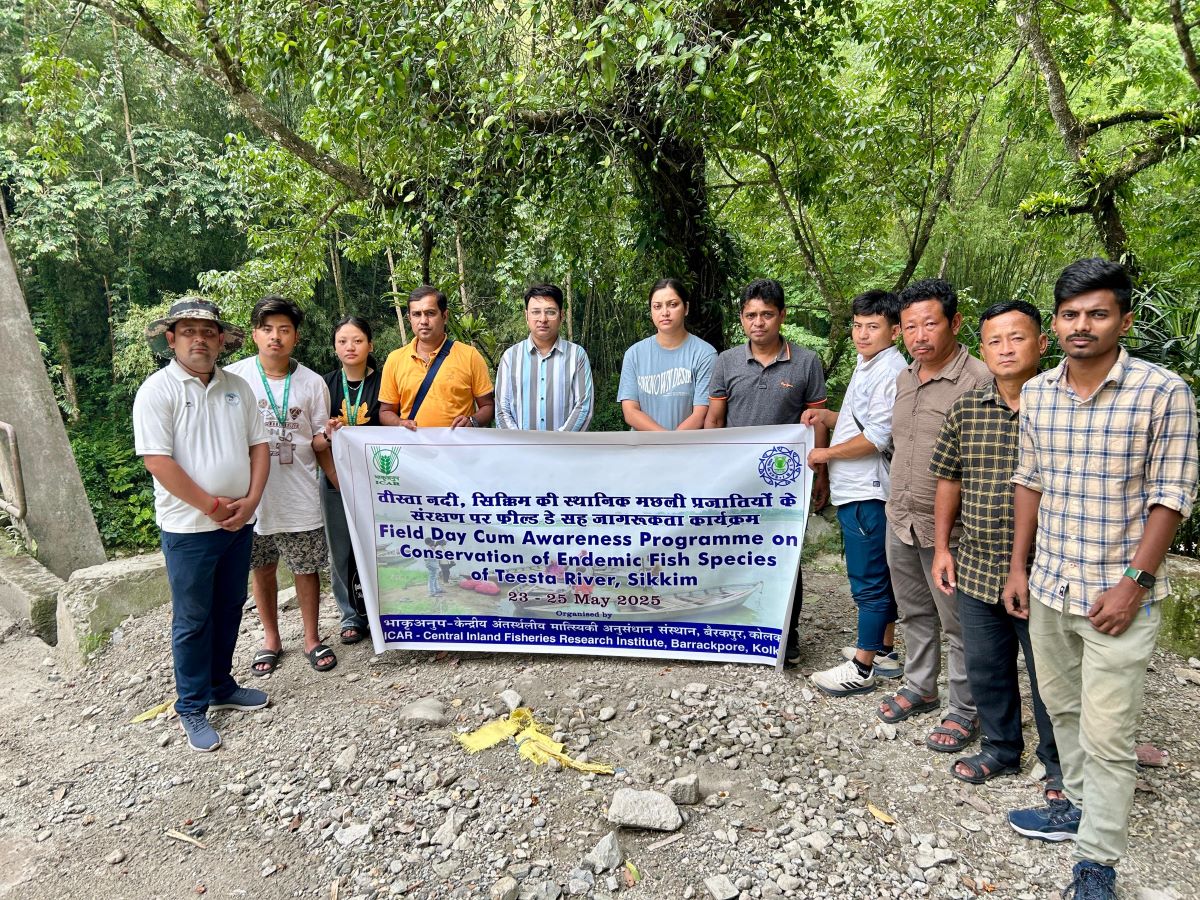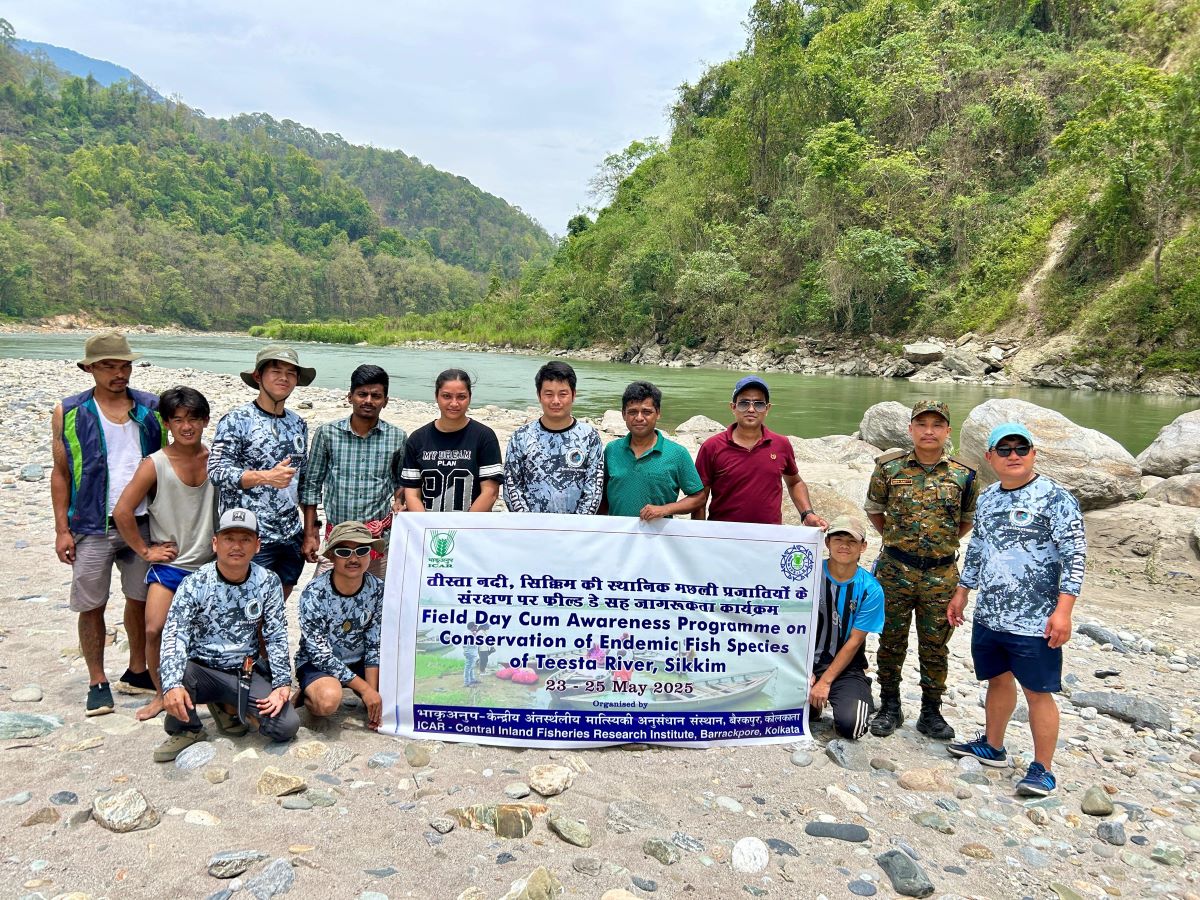Overview
Publications
Recruitment
Intranet
CIFRI Corners'
Location: Teesta River Basin, Sikkim ICAR-Central Inland Fisheries Research Institute, Barrackpore, and ICAR-CIFRI Regional Centre, Guwahati, in collaboration with the Department of Fisheries (DoF), Govt. of Sikkim, conducted three awareness field days on ‘Conservation of endemic fish species of Teesta River, Sikkim’ in Teesta River and its tributaries during 23-25 May 2025, at Gangtok, Pakyong and Namchi districts, Sikkim. The program was organised under the overall guidance of Dr. B. K. Das, Director, ICAR-CIFRI, Barrackpore; Ms. Roshni Rai, Secretary, DoF, Sikkim; Mr. K. K. Shrestha, Director, DoF, Sikkim, and Dr. S. K. Majhi, Head, ICAR-CIFRI, Guwahati. The program was attended by 50 fishers, including scientists and staff from ICAR-CIFRI, Barrackpore; ICAR-CIFRI, Guwahati; assistant directors and DoF officials from all three districts of Sikkim; and students from SRM University, Sikkim.














